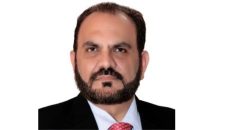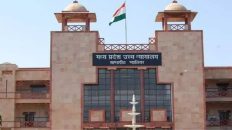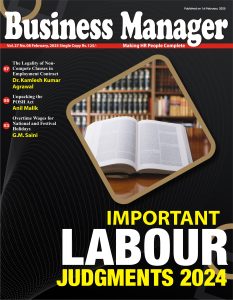Dattopant Thengadi Foundation (DTF) organized the workshop on 1st October, 2022 in Jawaharlal Nehru University, New Delhi on understanding and decoding the contemporary scenario of trade unions in India with respect to the transforming world of work and changing employer-employee relationship as well.
The workshop had two sessions initiated by Director General Virjesh Upadhyay and moderated by Arun Maira, one is physical and the other is virtual session. In the physical session, the industries and trade union members discussed the practical aspects related to the bipartite and tripartite scenario on the ground. The second session was succeeded by the theoretical aspects given by the academicians to substantiate and improve the ground scenario.
Virjesh Upadhyay initiated the workshop by setting the ground and discussing the focal points in the contemporary trade union movement. It has largely been felt that the trade union act of 1926 was neither then nor now sufficient to provide maximum space to the workers and their representatives. Furthermore, the labor unions are largely limited to the organized sector only making the unorganized sector workers vulnerable, precarious, and unaware of the benefits of the organization.
The rapid industrial transformations from the era of the industrial revolution to modern-day artificial intelligence have brought changes not only to the industries and traditional employer-employee relations through gig and platform work, and pandemic led remote work but it has transformed society as well with redesigned the value systems, reward systems, and social contracts underpinning society. It has further led to the concept of society 4.0, considerably different from the earlier (traditional) society.
Nonetheless, the pandemic has shown that despite the increased intervention of technology and transformed employer-employee relationship, the relevance of trade unions has been relevant more than ever with increased exploitation of employees amidst the health crisis. Therefore, it is important for the trade unions to understand its role in the changing times and rise strong against the odds.
In order to do so, the trade unions are required to enlarge their base from organized and traditional sectors to the unorganized sector workers, the gig and platform workers. The trade unions are also required to be informed and learn how to handle the misinformation by creating an effective social dialogue. For all of these tasks, a strategy is required to collectively revive of the trade unions. Henceforth, in order to revitalize the trade union movement, it is important to organizing and servicing new members, speaking and acting as one, widening the base of trade unions from formal to traditional informal sector as well, ensuring sound internal governance and strengthening effective and inclusive social dialogue on the issues of today and tomorrow.
Arun Maira discussed his experience regarding the revival of society altogether in order to transform the trade unions. He has extensively discussed the transformation in the existing social order and the way of perceiving the society. The Indian order according to Maira needs to be reshuffled and re-think to understand the labour perspective. Arun Maira has shared his experience of working with Tata group and their approach to the floor level workers and the relationship between the managerial staff to the floor level workers and the ethics established by the TATA group of industries. Furthermore, he has elaborated the need for social dialogue among the employer employees and the government bodies.
First session was addressed by Shri Vidyasagar Giri National Secretary, AITUC, Shri Rajendra Prasad Singh, Director PHD Chamber of Commerce and Industry and Shri Hiranmany Pandya National President, Bharatiya Mazdoor Sangh have bestowed their experience as key trade unionists and industrialist.
Vidyasagar Giri National Secretary, AITUC provided a sketch from history as he discussed the evolution and gradual development of trade unions globally and India as well. Furthermore, the Russian revolution and the establishment of ILO, the ILO conventions on minimum wages and working conditions have been discussed along with its influence on the Indian trade union movement as well. Giri through his assertions focused on the inevitable bond between the trade unions and the political parties as he elaborated the historical practice of the union of both and decline of any possibility to detach trade unions from the political affiliation.
Rajendra Prasad Singh, Director PHD Chamber of Commerce and Industry discussed his experience in working with the cooperatives and different labour representatives. His experience has brought before us three key elements viz. Creativity, innovation & use of technology and the co-operation between labour representatives and industries are important for the revival of the trade unions in India. Moreover, he emphasised the importance of industrial family in his discussion for an amicable industrial and societal environment and a steady progress of the country.
Hiranmany Pandya, National President, Bharatiya Mazdoor Sangh focused on the changes that are happening in the trade unions and it is required to adapt with the changes in the world of work. Automation is the reality of contemporary times that were previously resisted by the trade unions but now it is the time to accept the new conditions in the world of work. The debate of unorganised versus organised and attempt to create more jobs in the organised sector has been going on since our independence but it’s a matter of fact that the overwhelming majority of the Indian workforce is in the unorganised sector. The employers are also against the trade unionism in their enterprises. However, the ILO has convention on social protection (C-102) to protect against the vulnerability but weak trade unions in India and insufficient labour representations among the workforce is making the scenario difficult for the workforce. Even Shri Dattopant Thengadi has also propagated the idea of labour welfare.
In the closing session, Virjesh Upadhyay and Arun Maira discussed the key points elaborated by speakers in the first session. Decline of trade union membership is a non-avoidable reality of contemporary times. It is important for the trade unions to be non-political and industry specific. Also, it is crucial for the labour unions to use new tools and practices and adapt the use of technology as well.
The second virtual session was addressed by Sitakanta Panda, Assistant Professor, Economics, IIT Bhilai, Dr. Deepak Sharma, Associate Professor, HR, NMIMS, Dr. Sarika Jain, Professor- Assistant Dean Academics, DSIMS and Deendayalan, Chief Architect, Ceohrconsultancy.
Sitikanta Panda, Assistant Prof. IIT Bhilai talked about the unionisation is required for better working conditions, wages and reduced unemployment. The supply side factors are the legal environment, labour laws in different states and the ability of unions to capture excess rents firms generate. Also, he has discussed the decline in employment opportunities and registration of the workers in the trade unions in different states of India. Increased contractualisation and temporary employment has also added to this situation. Trade unions need to muster massive organisational strength so as to attract the institutional and political system to act in their favour.
Dr. Deepak Sharma, Associate Professor, HR, NMIMS has focused on bridging the gap between the ground realities of trade unions and the theoretical understanding of the related discourse. He has emphasised that work and workplaces both have been changed and they have been repositioned. The trade unions have been politicised and in contemporary times, different new kinds of trade unions are emerging that are shifting their focus on the non-traditional sectors such as gig and platform workers. These multiple trade unions are focusing on issues such as social security and just livelihood conditions as well.
Dr. Sarika Jain, Professor- Assistant Dean Academics, DSIMS emphasized on the Nature of employment, workers and society is changing. The total employment in the manufacturing sector has increased from 57 million in the year 2017-18 to 62.4 million in the year 2019-20. The activities under Make in India initiative are also being undertaken by several Central Government Ministries/Departments and various State Governments. Henceforth 12 million indirect employment is created. SEWA and Learn Mahila Kaamgaar Sangathan (LMKS) are few examples that have showcased innovative trade unionism. Digital technology, robots and industry 4.0 are the new realities of the contemporary world of work. Trade union participation in the COP meetings has affected their engagement with climate policies. The rising global importance of climate politics and the objective of being recognized as an official constituency led unions to increase their presence at the COP meetings. For the same there is a need to collaborate more with International Unions to get better exposure. Participation in Sustainable Development Goals (SDGs) is another way to work collaboratively with organizations and respective GOI. Also distancing from Political clout will help unions to enhance trust from the industry and the workers equally.
Shri Deendayalan, Chief Architect, Ceohrconsultancy has provided the example of Europe and trade unionism in the European countries where they have set the example of better productivity with strong trade union movement. He has emphasised on the time to focus on Duties and India excels in Global Skill Index from 92 to first 10 for country to move from Consumers to Creating Contributors. The lack of legacy in the trade union movement, past militancy and bad mouthing are some of the results of declining trade union movement in India.
Most of the speakers unanimously agreed on certain points such as the non-political approach of the trade unions needs to be practiced along with the adoption of new technology. The trade unions should be industry specific in order to grasp the heterogeneity of workers in different industries, their customized issues, and demands. Furthermore, the trade unions need to be in tandem with society as well so that the developments in society 4.0 and industry 4.0 can work together for collective welfare.
























Add comment